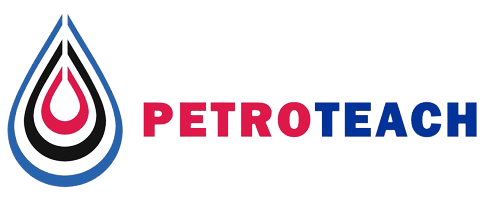DRL 327
Managing Lost Time
This course offers evident discussions and exercises to review, analyze, identify, investigate, evident Drilling project’s, hazards and risks contributing to lost time events.


This course offers evident discussions and exercises to review, analyze, identify, investigate, evident Drilling project’s, hazards and risks contributing to lost time events.

| Code | Date | Location | price (€)* |
|---|---|---|---|
| DRL 327 | 10 - 13 Jun 2025 | Online | 1550 |
| DRL 327 | 20 – 23 May 2025 | Stavanger | 3990 |
* Prices are subject to VAT and local terms. Ph.D. students, groups (≥ 3 persons) and early bird registrants (8 weeks in advance) are entitled to a DISCOUNT!
Loss control is a process safety strategy used in several industries including, Aviation, Automobile, Transportation, Railroads, and Maritime businesses. From the loss/waste resulting, participants are then tasked to review the physical, paper and human evidence of the problem areas identified that ‘go wrong’. The goal is to enable the participant to determine and evaluate both recommendations and corrective actions required.
This course offers evident discussions and exercises to review, analyze, identify, investigate, evident Drilling project’s, hazards and risks contributing to lost time events. You will learn how to optimize all drilling resources to more proactively avoid loss and waste to assure improved wellbore drilling optimization results. With evident case studies to endorse Drilling Excellence attainment methods utilized. Using adult learning methods, course enables selective MLT™ principle, methods, and metrics to be applied and integrated within existing management systems and daily drilling project work practices. Where the application of loss control ‘Instructions, Standards, Measurements, Evaluation and Success’ methods, offer a SMART metrics focus in preference to existing NPT methods.
o Workshop purpose, introductions
Group exercise: Establish individual
goals & objectives
o Optimising (loss control)
within well’s operations
o Well hazards, risks and problem’ avoidance
o Work group WG1: hazards and
risks workgroup exercise
Labelling, prioritising problems,
associating risks, begin to work mitigations
o Review, Revisit goals and objectives
o Managing loss/waste, metrics
and controls well projects
o Work group WG2; Loss contro ‘recognition, analysis’
o Work group WG2; Recognition,
analysis work group exercise
o Work group WG3: Loss control
identification, determination and evaluation
o Firefighting Operations
o Capping Operations
o Snubbing operations
o Snub in dynamic kill
o How to see the difference in
well operations
o 5 MLT methods to deliver wells success
o How to investigate, translate and
sustain learning
o Latent cause
analysis (case study exercise)

Peter Aird C.Eng, CmarEng, FIMarEST, has 40 years’ experience as a drilling, well engineering and operations specialist. Peter worked in Shell International from 1980-1987 as a drilling supervisor, where he then worked in staff based positions from 1987-1993 with Shell & BP. He then developed further knowledge and experience working in global consultancy positions from 1993-2005 in Deepwater, HPHT, Exploration and Appraisal Frontiers and Deepwater Horizontal development drilling and more complex well’s projects. Areas worked included: South East Asia (Brunei, Indonesia, Malaysia, Vietnam, China), North Atlantic, West of Britain, Norway, Faeroes, Greenland, the Black Sea, South Atlantic, Europe Mediterranean, Red Sea and West Africa. From 2005 Peter was employed in senior staff, consultant and advisory based specialist drilling engineering leadership roles with operating companies including Kerr McGee, Maersk & Marathon Oil, Cairn Energy (UK), ONGC (India), Centrica (Norway), and Providence Resources (Ireland). Drilling specialities further refined on a variety of subsea, horizontal, platform in-fill, HPHT, deep and ultra-deep water drilling projects.
The course has been designed for drilling and well completion engineers.
Intermediate
The objectives of this workshop are to enable participants to:
o Recognize and analyze the true and evident extent of the physical ‘loss and waste’ that exists within well operations.
o Determine and evaluate what the benefits are by applying the ‘knowledge and managing lost time’ delivery approach can achieve.
o A primary objective is to change the way people approach challenges, using the MLT methods and metrics
o SEE (Safe, Effective, Efficient), the CAN-DO change that can result (based on case studies presented) using MLT™ metrics, management and controls as advocated within this course.
Registration is now OPEN!
* Prices are subject to VAT and local terms. Ph.D. students, groups (≥ 3 persons) and early bird registrants (8 weeks in advance) are entitled to a DISCOUNT!
For more details and registration please send email to: register@petro-teach.com
Would you like a PetroTeach training course delivered at a time or location to suit you?
click for request in house